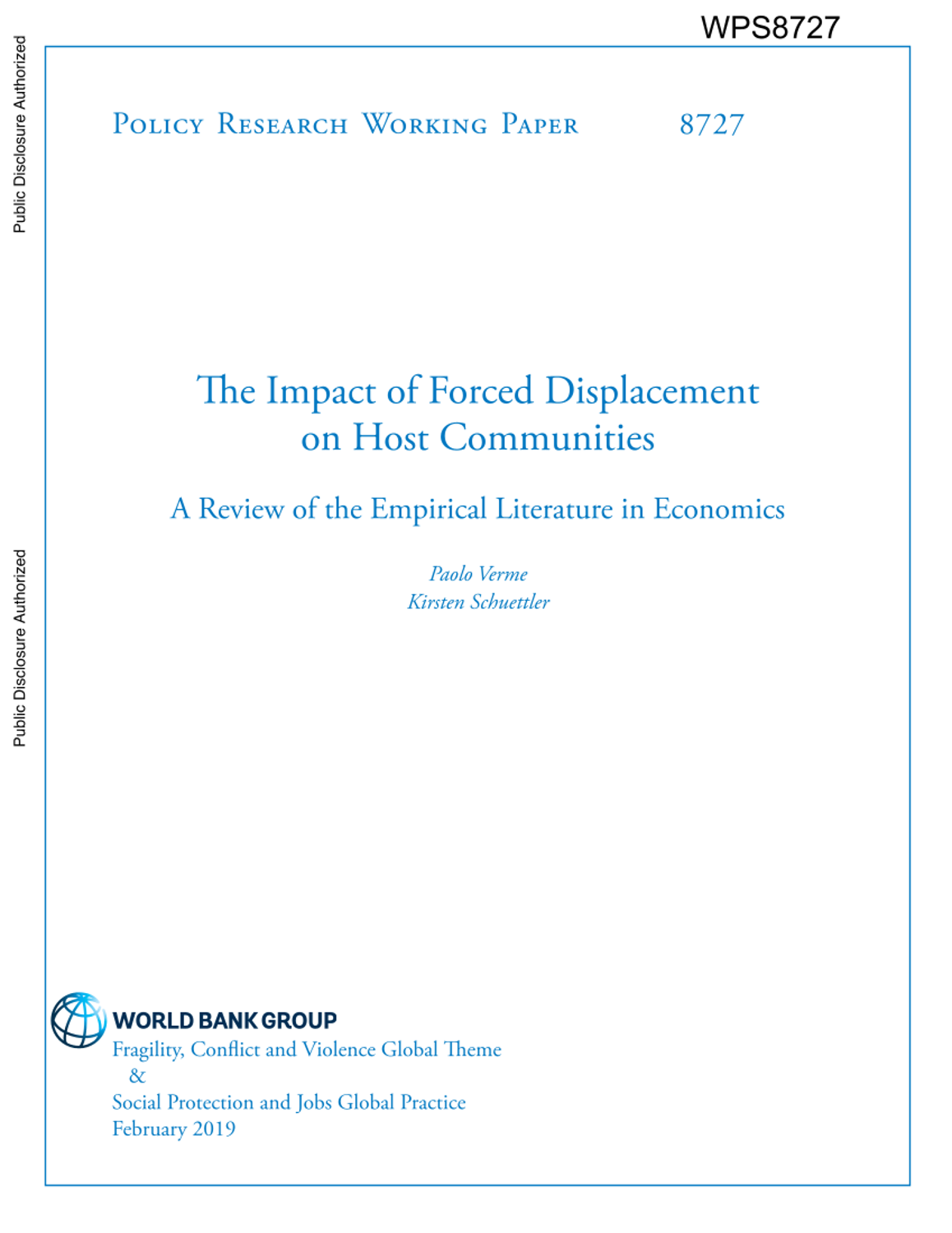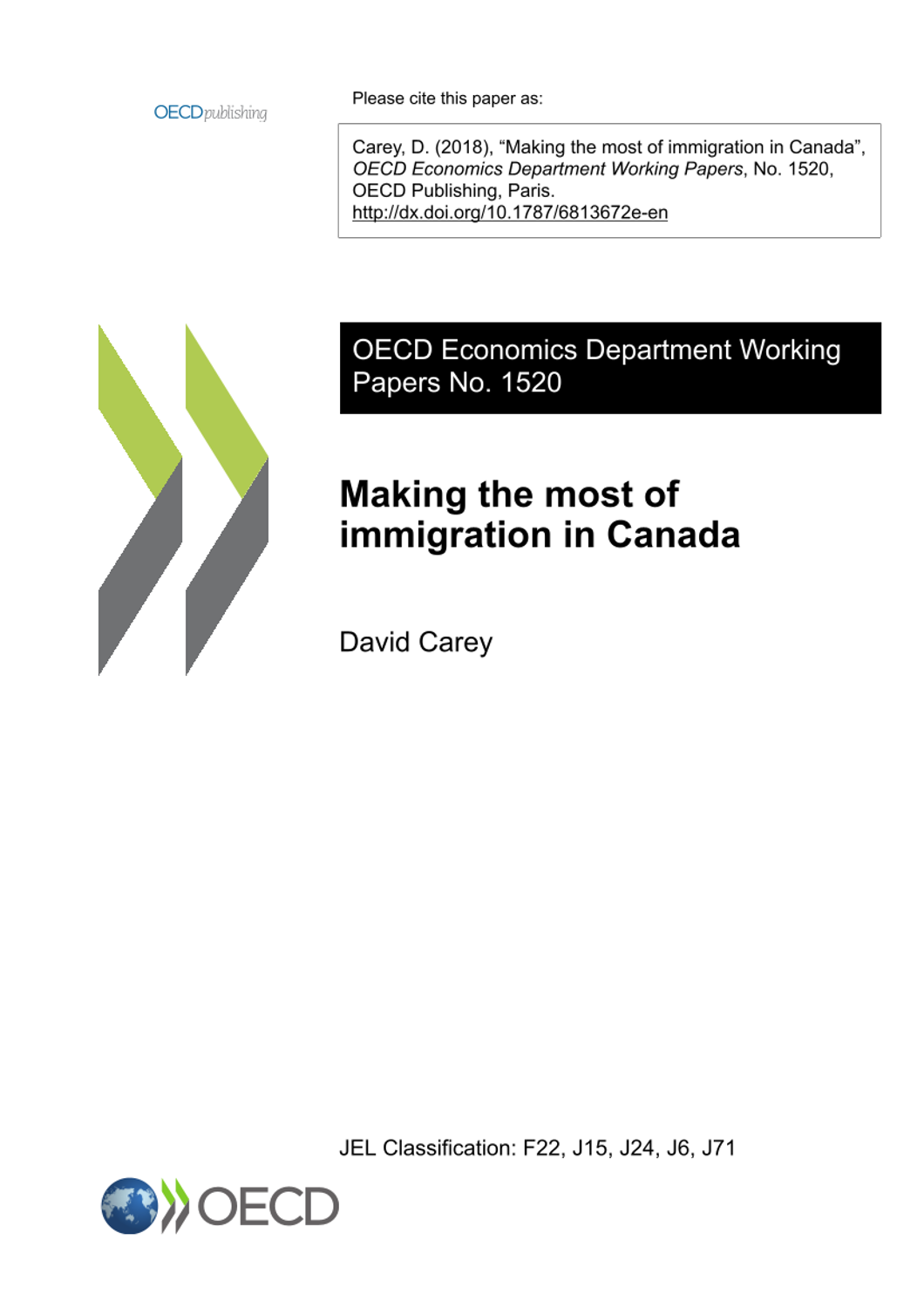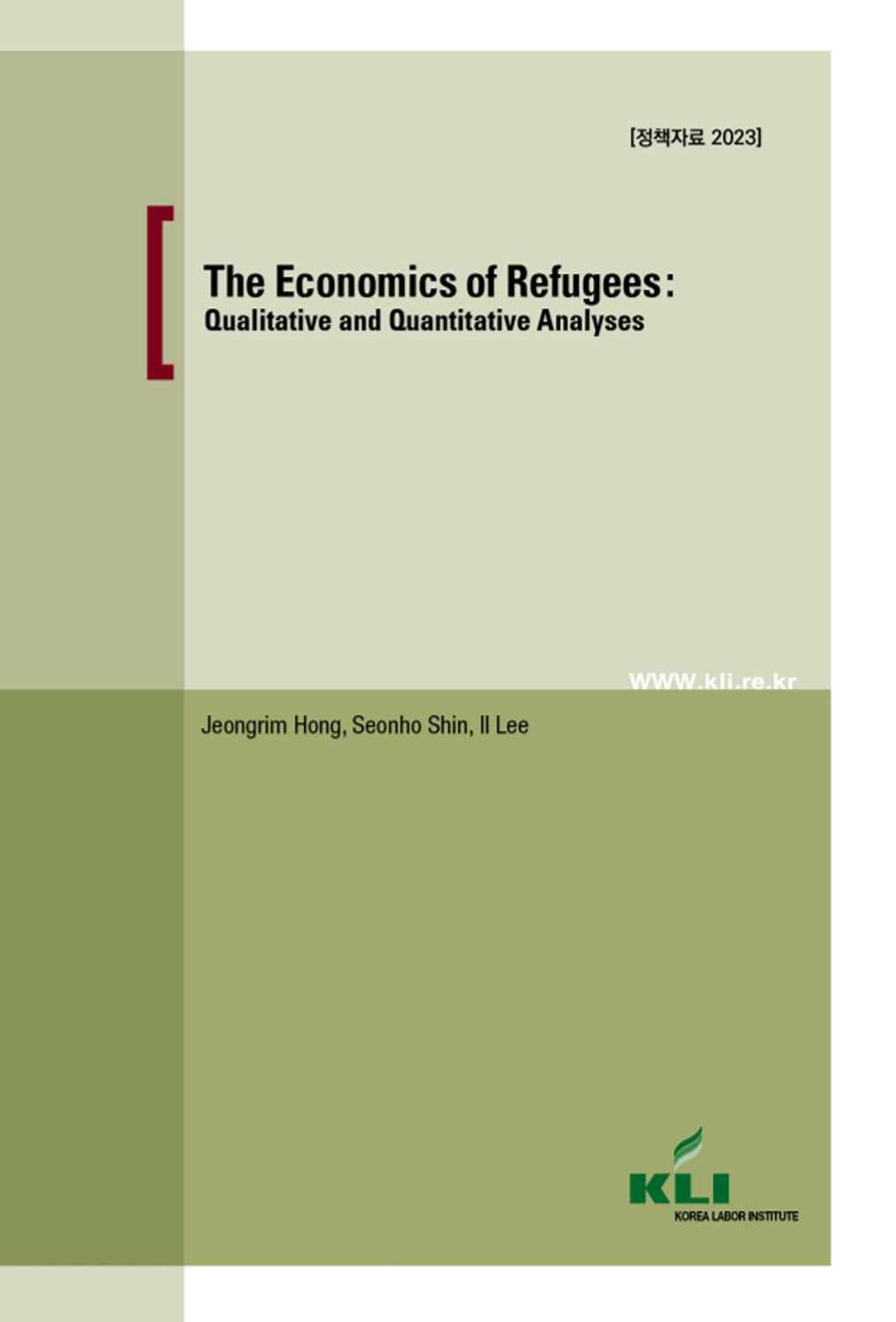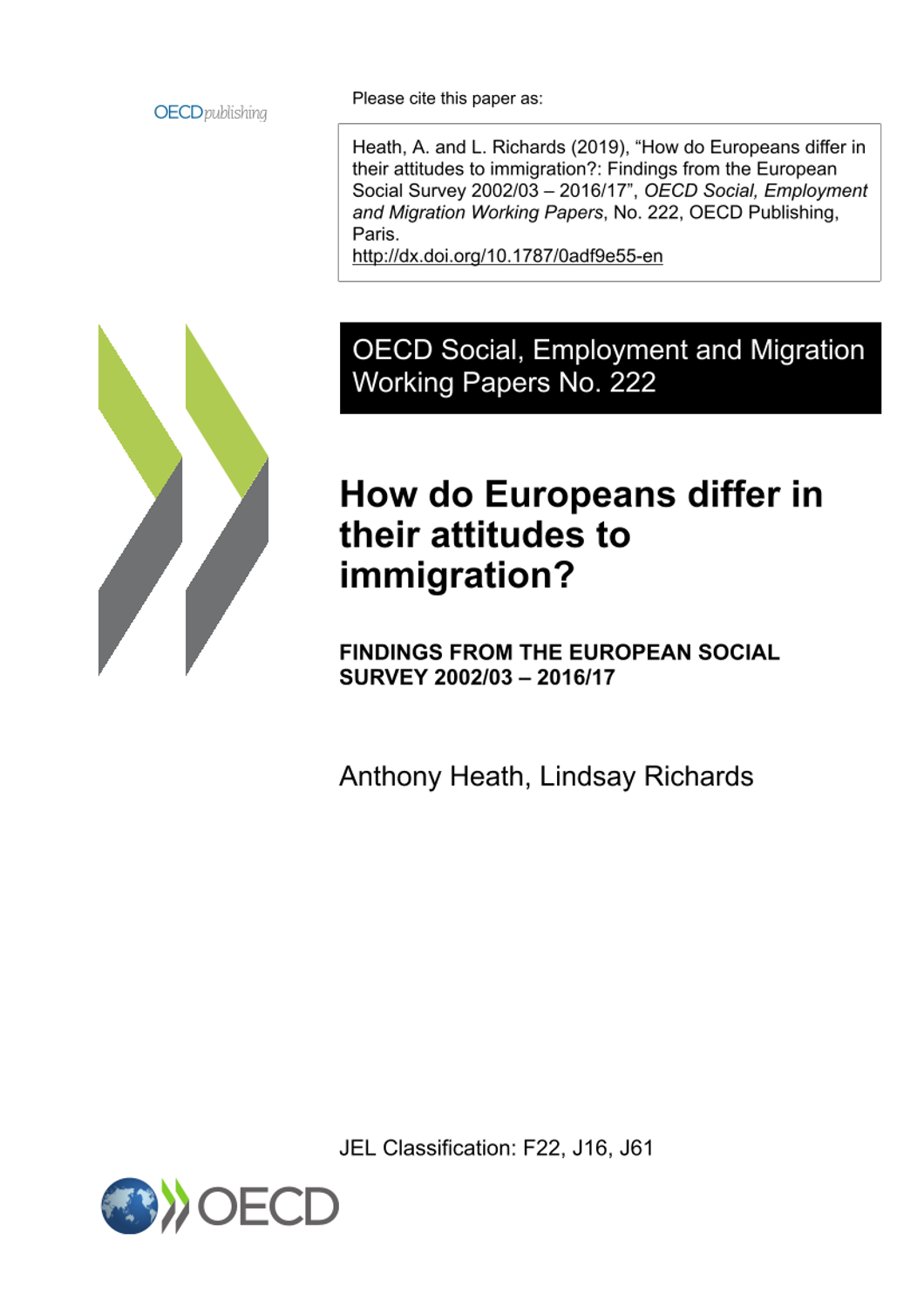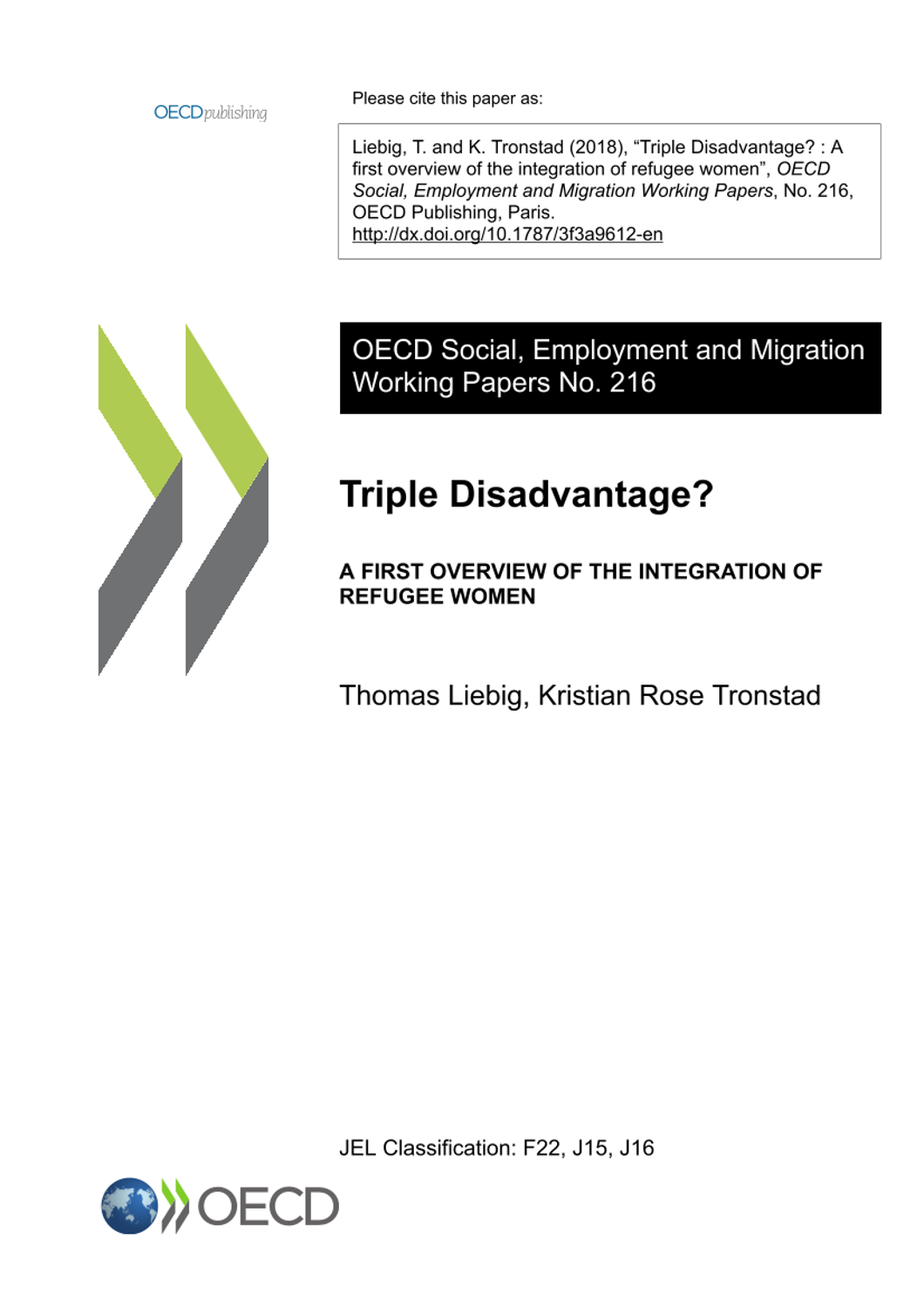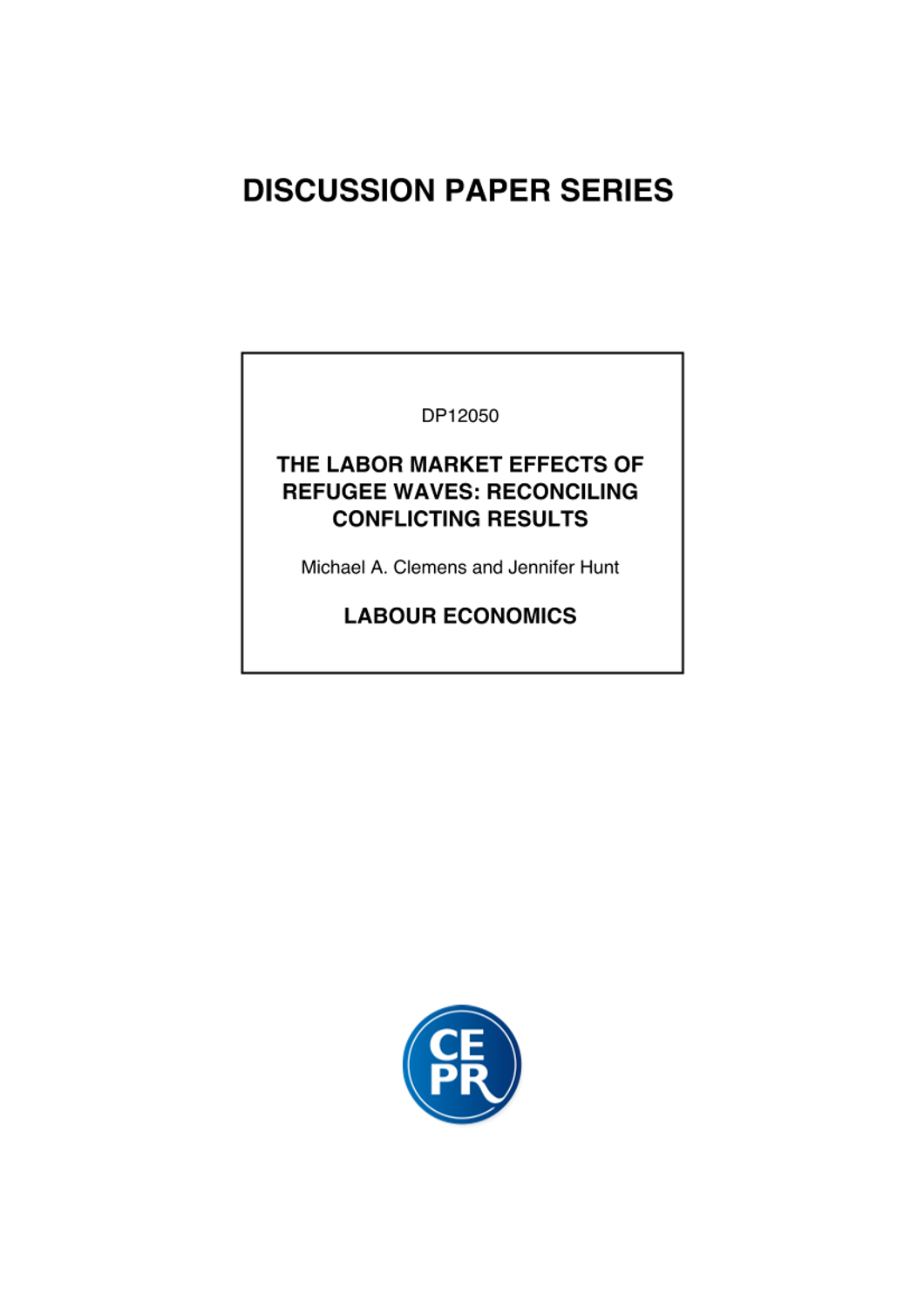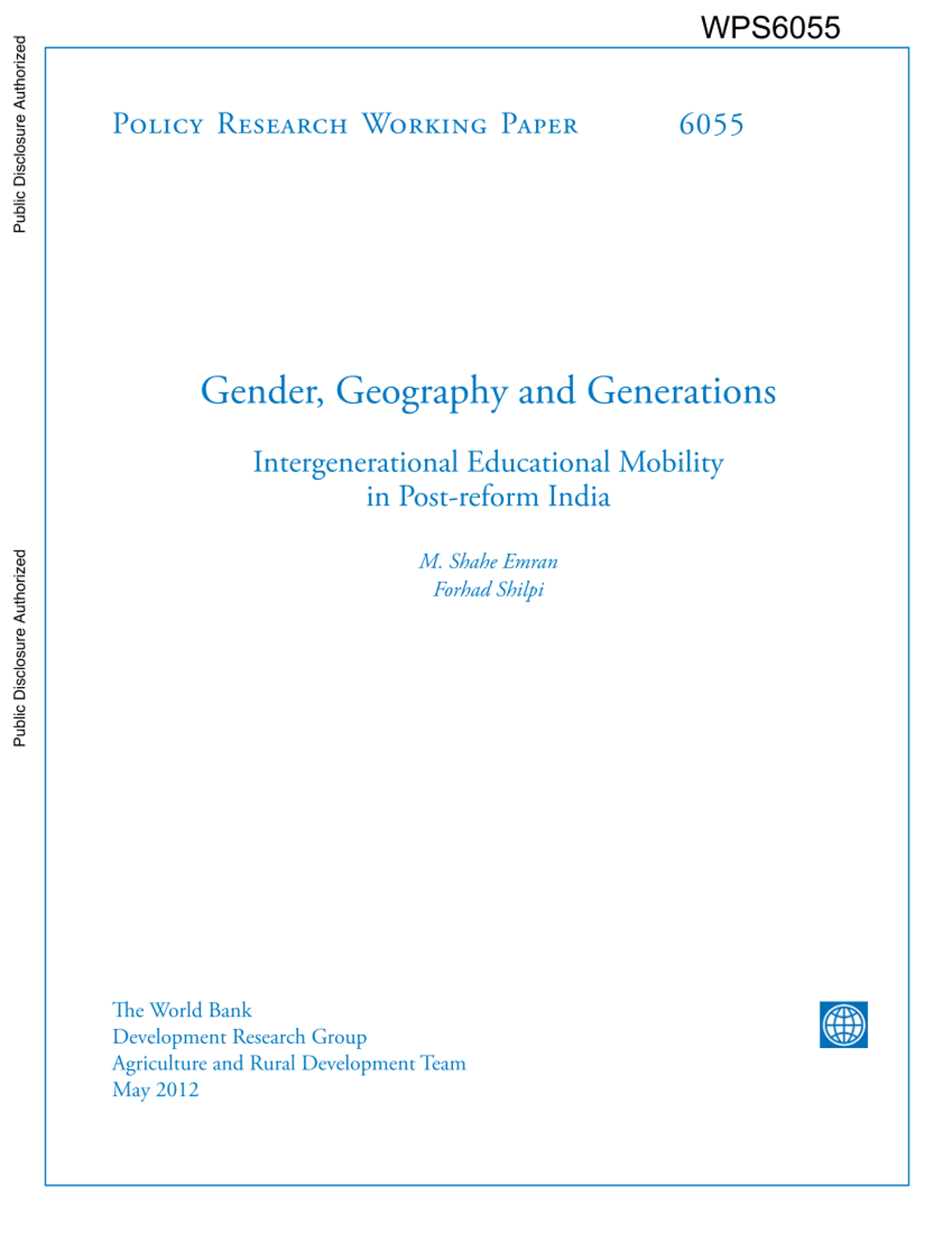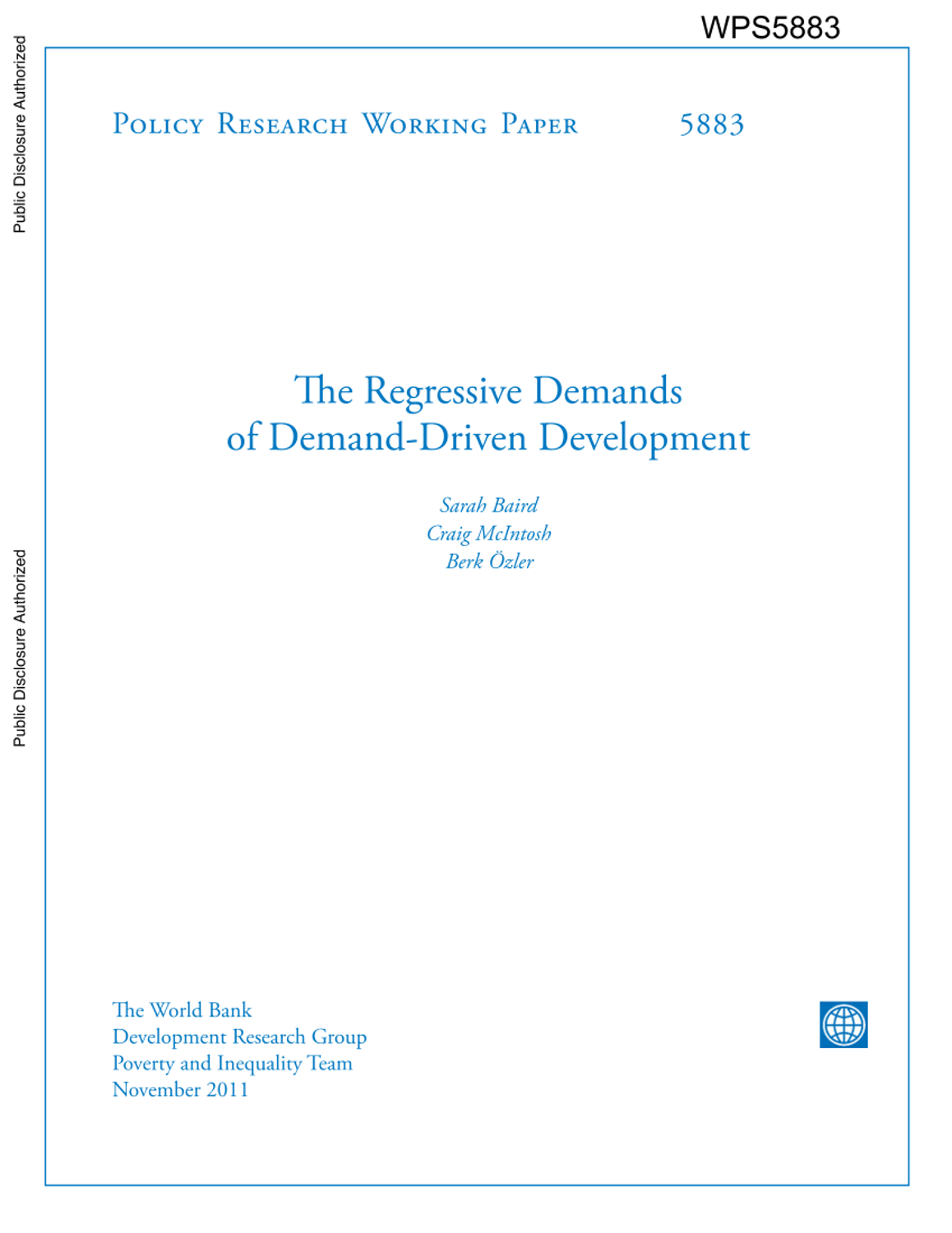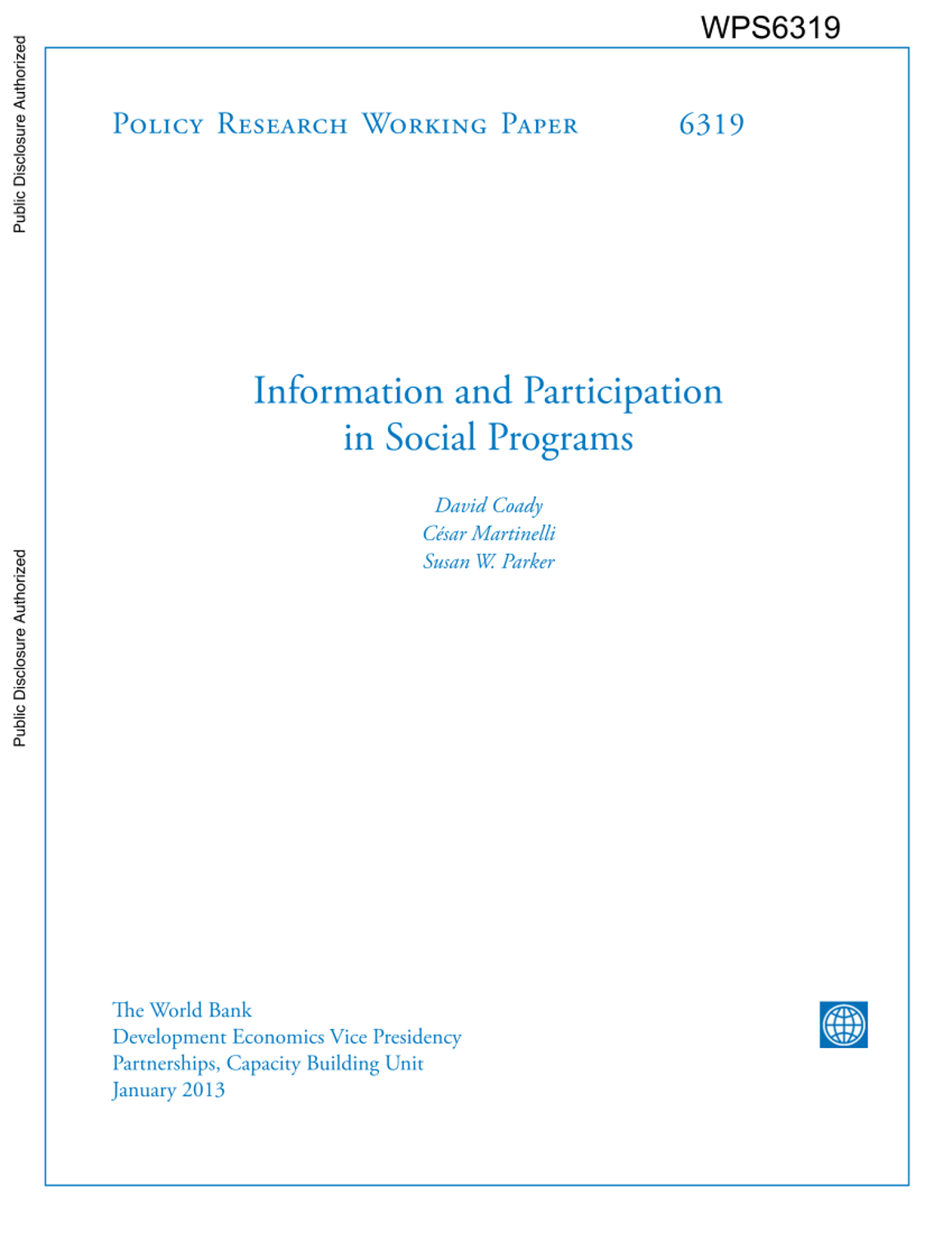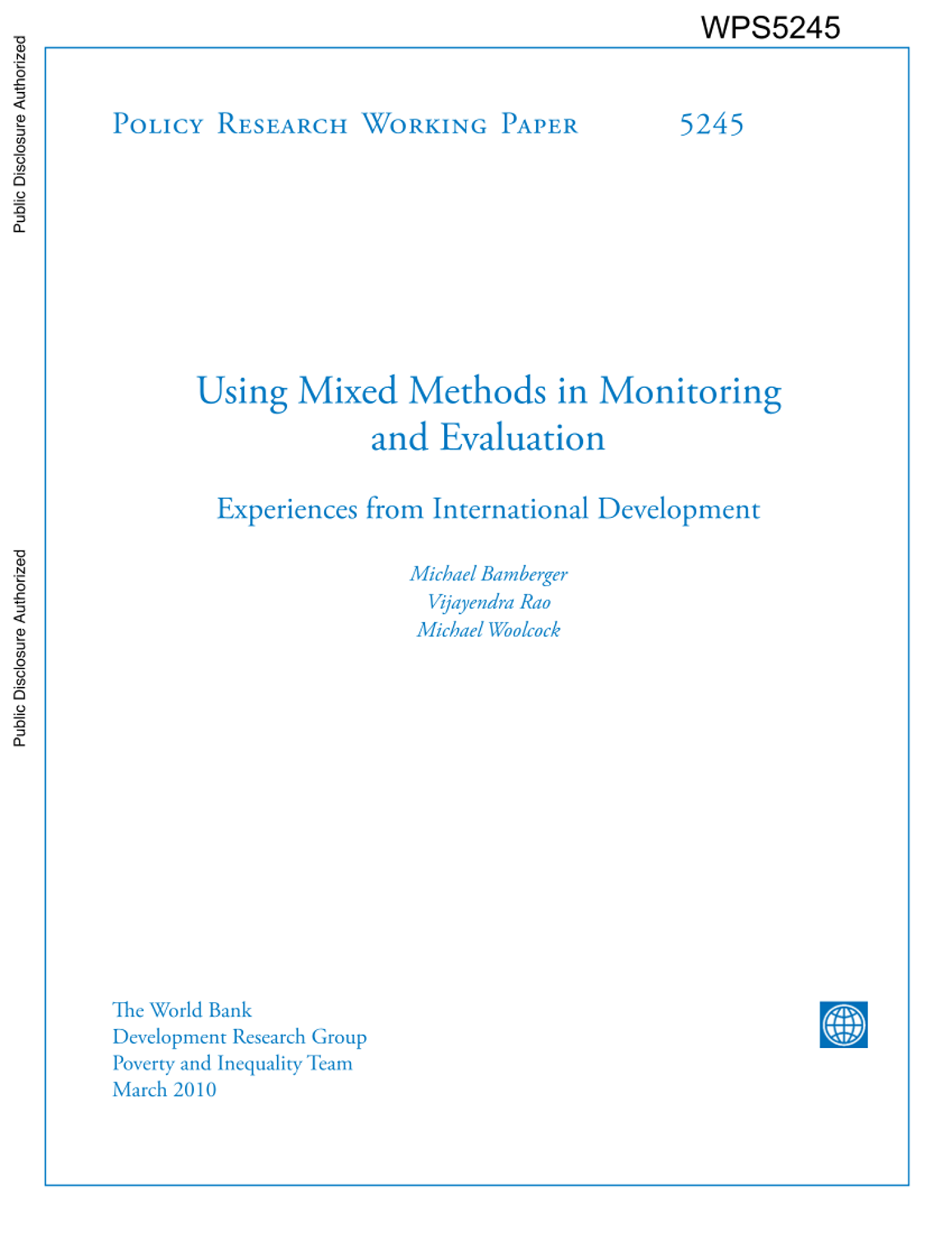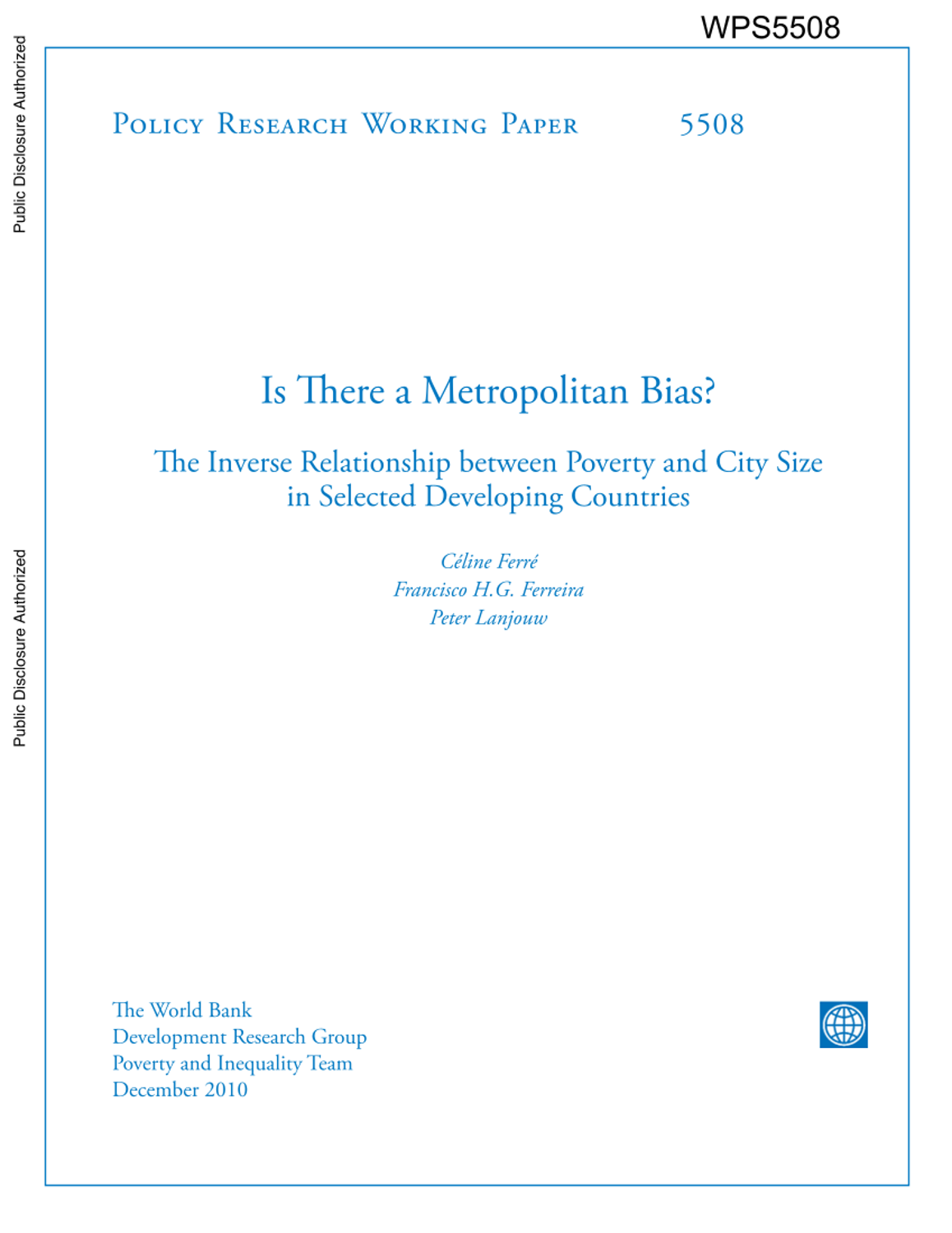단행본World Bank Policy Research Working Paper 8727
(The) impact of forced displacement on host communities: a review of the empirical literature in economics
- 청구기호
- WPS 8727
- 발행사항
- United States : World Bank, 2019
- 형태사항
- 64 p. :. PDF file ;. 1.22 MB
- 분류기호
- 듀이십진분류법->WPS
소장정보
| 위치 | 등록번호 | 청구기호 / 출력 | 상태 | 반납예정일 |
|---|---|---|---|---|
이용 가능 (1) | ||||
| E0003312 | 대출가능 | - | ||
이용 가능 (1)
- 등록번호
- E0003312
- 상태/반납예정일
- 대출가능
- -
- 위치/청구기호(출력)
책 소개
The paper reviews 49 empirical studies that estimate the impact of forced displacement on host communities. A review of the empirical models used by these studies and a meta-analysis of 762 separate results collected from them are the main contributions of the paper. Coverage extends to 17 major forced displacement crises that occurred between 1922 and 2015, to host countries at different levels of economic development and different types of forced migrants. The focus is on outcomes related to household well-being, prices, employment, and wages. All studies can be classified as ex post quasi-natural experiments. The analysis on empirical modeling shows a preference for partial equilibrium modeling, differences-in-differences evaluation methods, and cross-section econometrics, with all these choices largely dependent on the type of data available. The meta-analysis on household well-being shows that between 45 and 52 percent of the results are positive and significant, indicating a net improvement in household well-being. An additional 34 to 42 percent of the results are found to be nonsignificant, and 6 to 20 percent show a decrease in household well-being. The analyses on employment and wages show positive and significant improvements for 12 to 20 percent of the results, nonsignificant results in 63 percent of the cases, and negative and significant results for 22 to 25 percent of the results. Negative results on employment and wages relate to young and informal workers in middle-income countries. The results on prices show asymmetric behavior across types of products. Overall, the probability of having a negative outcome for host communities in the consumer and labor markets is below 20 percent.

